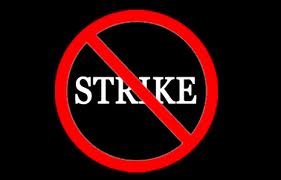The federal government has been tasked with establishing a more effective psychiatric and mental health service system in Nigerian hospitals to improve cultural acceptability, accessibility, and affordability as Nigeria joined the rest of the world to celebrate World Mental Health Day this year.
A healthcare consultant and former chairman of the Lagos State Traditional Medicine Board, Dr. Bunmi Omoseyindemi, made the call in Lagos. He said that integrating traditional healing practices into the healthcare system would make mental health services more culturally acceptable, more accessible, and more affordable by using the skills and knowledge of traditional healers.
Speaking at the Mindsplace World Mental Health Day Awakening Summit with the theme “Awakening Minds: Access, Awareness, Action”, Omoseyindemi said there is a need for improved research and documentation of traditional mental health management practices, as well as collaborative training programmes between traditional healers and Western-trained medical practitioners.
In his presentation entitled “Healing from the Roots: The Importance of Cultural Competence in Mental Healthcare”, her called for development of a policy framework for the integration of traditional medicine practitioners into the healthcare system, in addition to providing funding for the development of functional traditional healing practices and ensuring their effective implementation.
“There is need for policy direction on the need for establishing an improved system of psychiatry and mental health services in our hospitals that will drive cultural acceptability, accessibility, affordability through a holistic approach.
“This will involve integrating the psychiatric skills of traditional healers in order to improve cultural acceptability, accessibility, and affordability of mental healthcare services as this will promote health care services to other health care settings and facilities.”
On documentation, he stated that there is need for improvement in research and documentation of the practice of mental health management for traditional medicine.
“There is need for continuous and adequate training programmes for traditional healers involved in management of health and collaborative exchange programmes with the western trained medical practitioners towards development of a proper guideline for mental health community, parties, based on mutual trust and respect.
“This is very important because doctors tend to see traditional healers as inferior people, and I think we have to change that mindset. And there will be development of policy framework towards the integration of traditional medicine practitioners with the management of funding.
“There is need to provide funding for the development of functional traditional practitioners, full effective project provision and development. By addressing these issues, Nigeria can establish a more comprehensive and culturally sensitive mental health care system that meets the needs of its population.”
Further, Omoseyindemi said that changing cultural and societal conditions were responsible for the increase in mental health conditions in Nigeria today. He observed that neglecting the role of tradition and culture in context will not address psychiatric challenges in Nigeria.
“That is why we have not been moved to address the psychiatric challenges we have in the country, where we have only 300 psychiatrists and less than 10,000 other health workers. We look at mental health issues based on European culture, American culture without coming to look at our own culture and the background of social development.
“One of the major challenges in treating mental illness in Nigeria is that the facilities and mental health professionals are not enough and neglecting the role of traditional and cultural medicine is not giving enough attention towards mental health,” he argued.
SOURCE: VANGUARD NEWSPAPER





